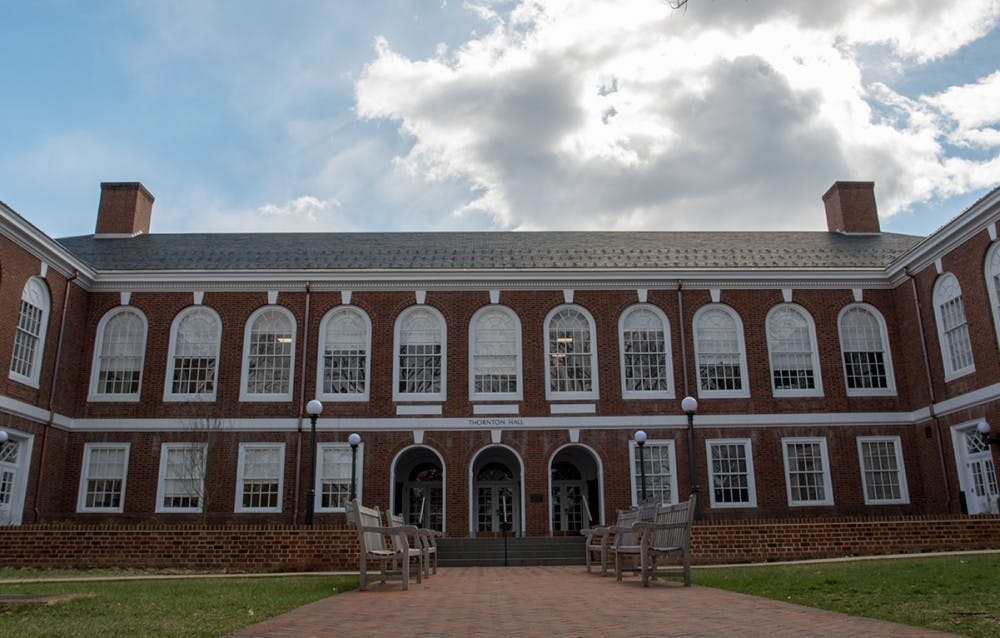In a time where college students frequently graduate unprepared for the workforce, the University stands out for its well-rounded curriculum and exceptionally prepared students. This, of course, is unsurprising for a school often referred to as a “Public Ivy.” However, as distinguished this education is, some flaws still hold graduates back from succeeding in the job market. One particular flaw that plagues many schools is the engineer’s overspecialization, missing vital critical thinking and ethical skills. Additionally, liberal arts students often miss out on strictly marketable computer skills.
One of the defining features of the University’s College of Arts and Sciences is the vast quantity of general education requirements one must take to graduate. A student cannot graduate with a degree in studio art without learning some practical mathematics or sciences, and likewise a statistics major cannot graduate without taking some form of art and literature. This system serves to produce well-rounded, capable graduates who are not only proficient in the skills their major requires, but also at least familiar with all other included disciplines.
The Engineering School should learn from this example. Some majors such as Mechanical Engineering are limited to just three humanities or social science electives and only three unrestricted electives. This allows them to just barely graduate on time without exploring their passions. There is no opportunity to delve into other areas beyond a bare minimum.
This is not just a problem on a level of intellectual fulfillment — experts claim that philosophy and ethics are more important now than they ever have been. Amidst the STEM-centered world we live in is a constant question of ethics and privacy, made even more visible by the problems with data management we now face constantly. Companies like Facebook and Google have a massive amount of information on their customers — and there is simply no precedent or ethical standard for what to do with it.
Moreover, many students in the College graduate without sufficient skills for many available jobs. Students may graduate without even knowing the basics in Microsoft Excel, a skill that forms the basis for up to 82 percent of middle-skilled jobs. This blind spot in an already competitive job market puts any student who does not voluntarily take classes outside of their area of expertise at a massive disadvantage. Many students do not even know they are missing out on these skills — something that should not happen at such a prestigious University. In addition, many employers look for entry level coding experience. Indeed, a job search website, shows around 76,000 jobs that look for experience in Python.
The issues do not stop at just practicality and job readiness, however. Many students claim they do not have the time to take the classes they want before graduation because of demanding and restrictive major requirements. Shifting some requirements from a major to general education would allow them to justify a spot in their busy schedules for perhaps an extra philosophy or religion class that might interest them. This would also allow students to take off some of the pressure on their difficult classes without feeling guilty over wasting time on easier, non-major-related classes.
Fortunately, the University does have some positive aspects to its curriculum. The Darden School of Business is ranked as the number one most satisfying place to get an MBA, and the University is ranked number 28 in “National Universities” by U.S. News and World Report, indicating that its students are fairly well prepared for life after college. While this is an excellent starting point for a comprehensive and sufficient education, there is still much more progress to be made.
In order to produce more capable and well-rounded students, the University should expand its general education requirements in all of its schools. Basic competency in computer skills such as Python and Microsoft Office should be added into the curriculum, as should a basic ethics course covering the moral responsibilities of law, politics and business. This expanded curriculum would give a baseline understanding of all requisite skills for most office jobs and would also give a baseline of ethical behavior in our morally-complicated world. It is true that this expanded curriculum would be difficult to work in to the current University schedule, but it could be achieved by cutting down on major requirements. Students at the University are simply not ready to enter a job market that is more competitive than ever. Unless the University expands their students’ skill sets, graduates will continue to fall behind.
Carson Flickinger is a Viewpoint Writer for the Cavalier Daily. He can be reached at opinion@cavalierdaily.com.
The opinions expressed in this column are not necessarily those of The Cavalier Daily. Columns represent the views of the authors alone.







